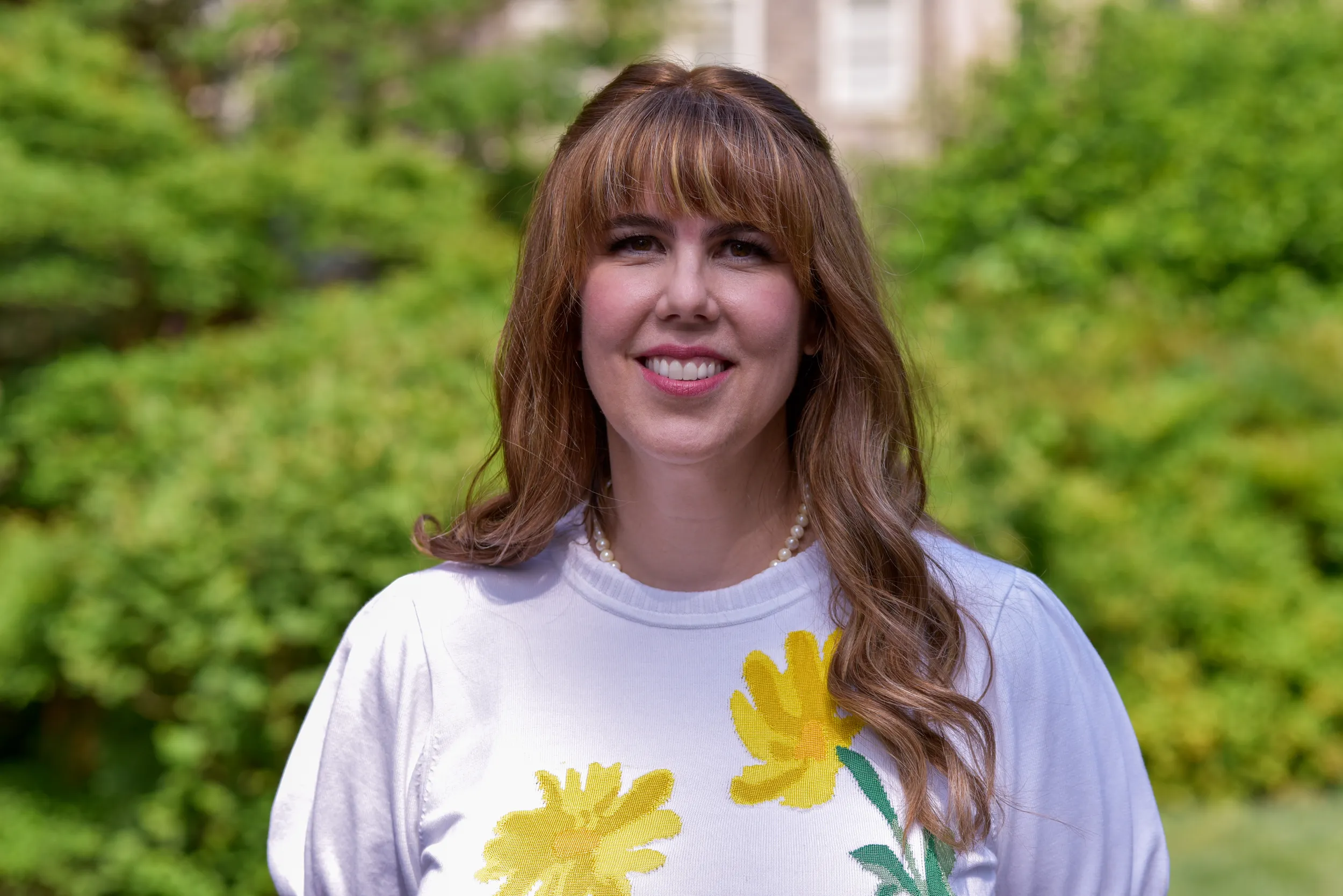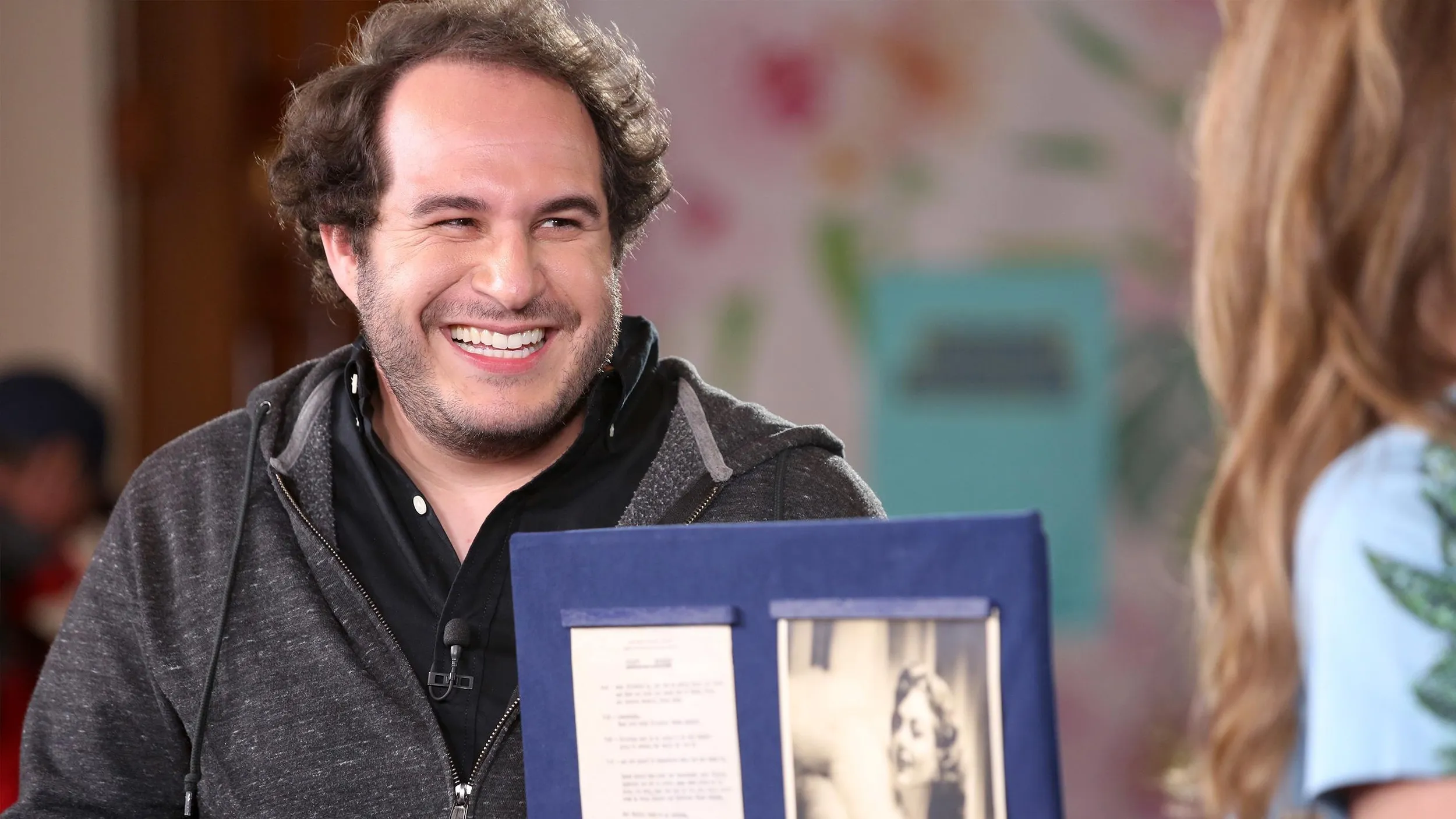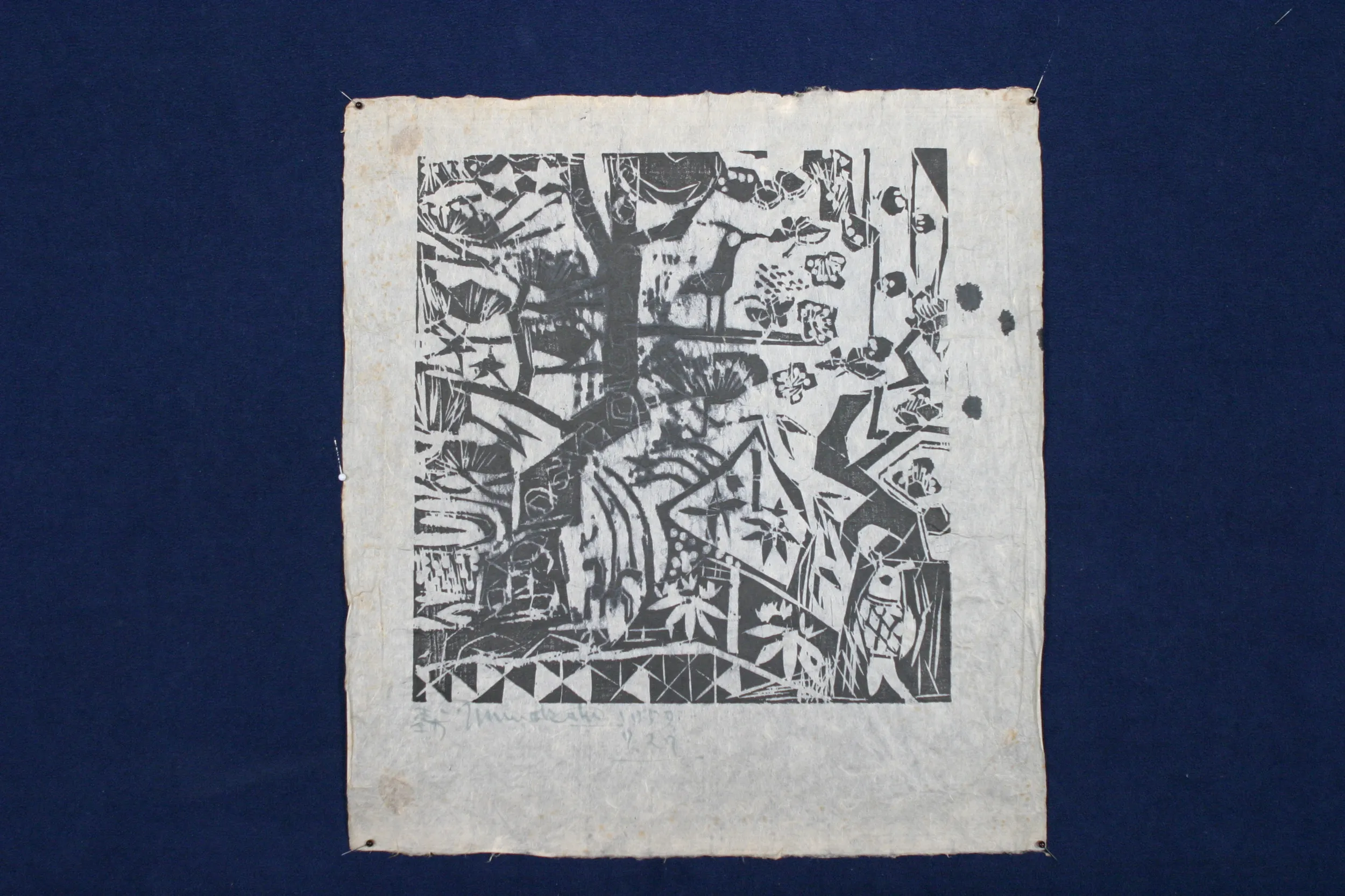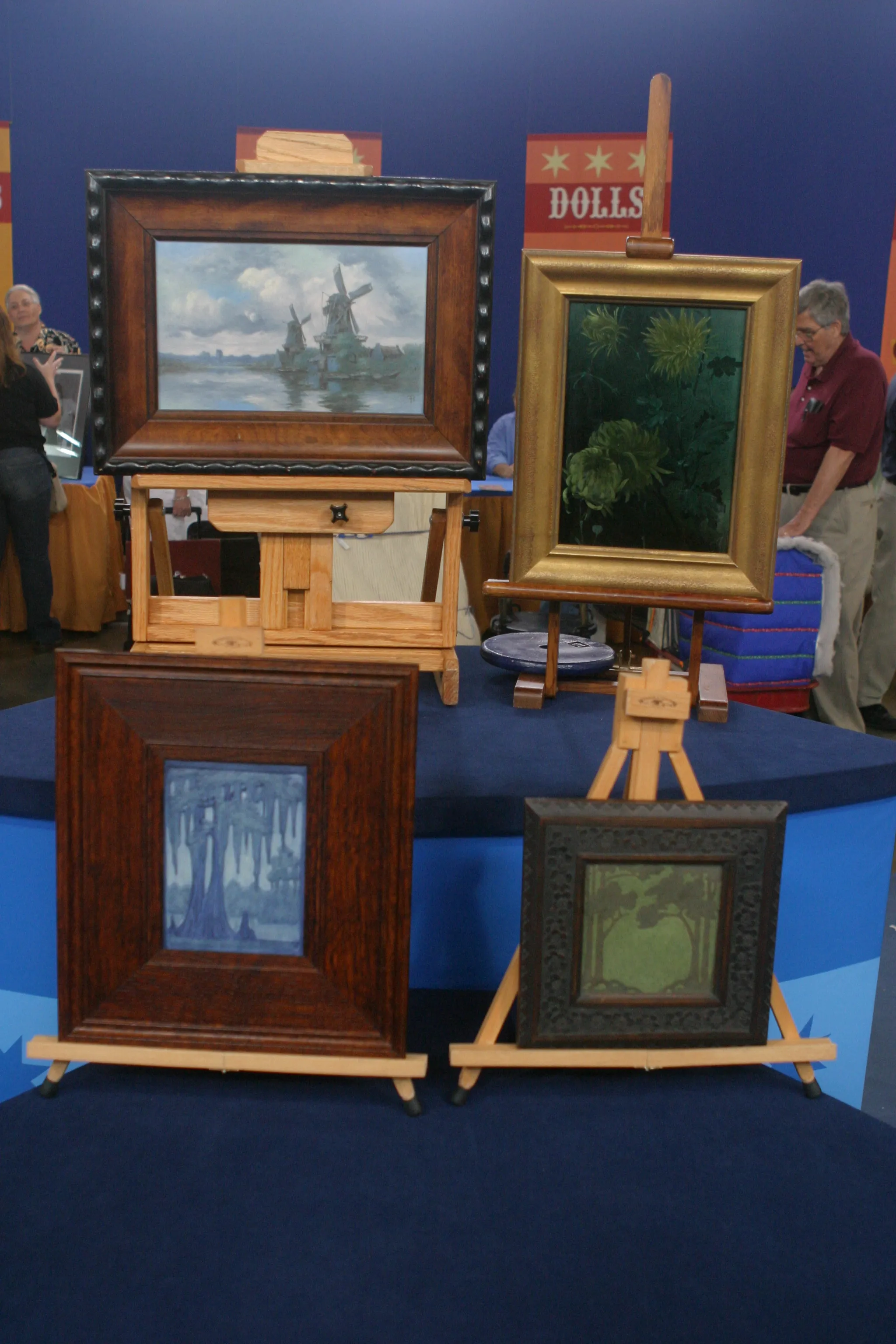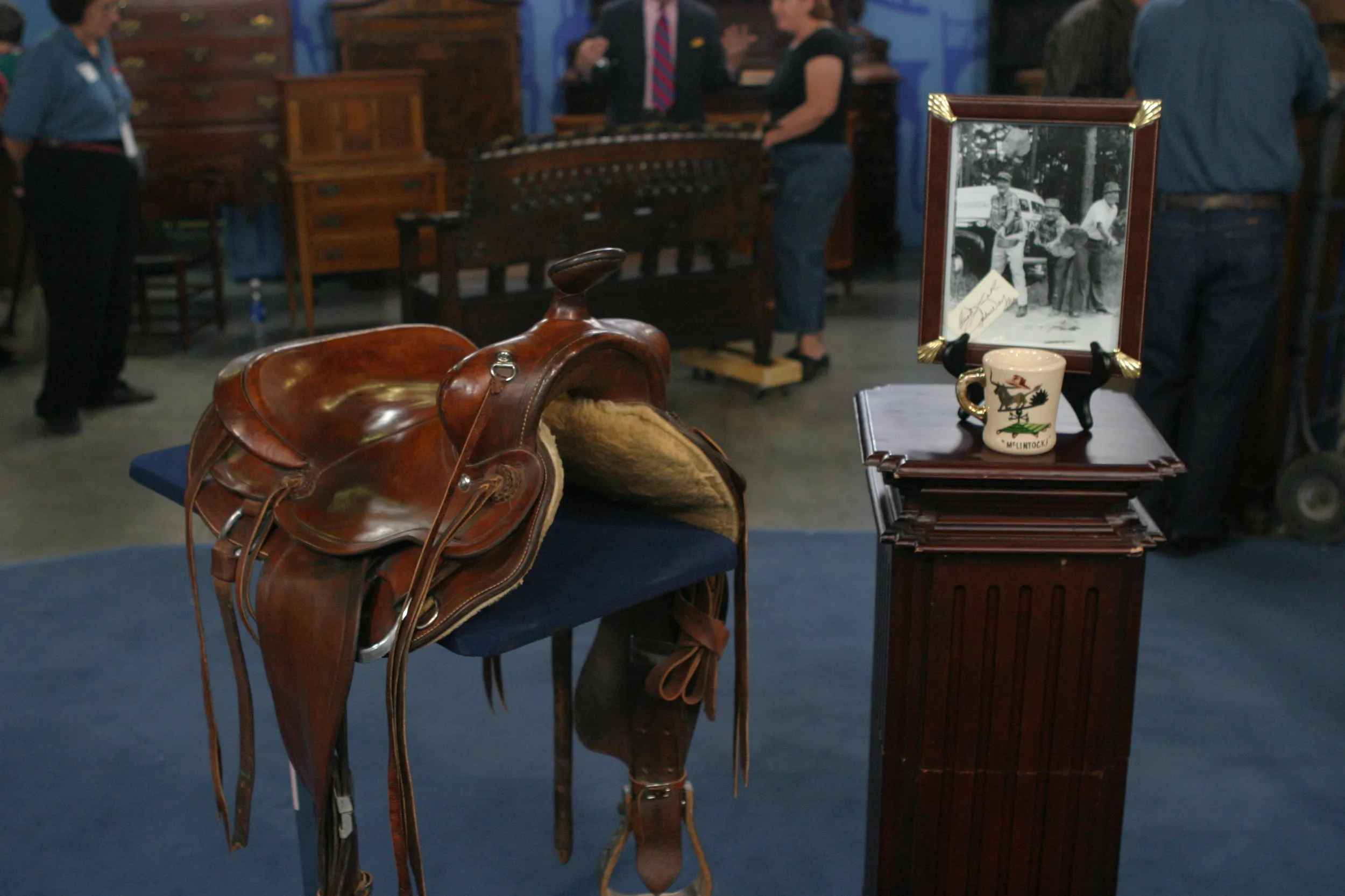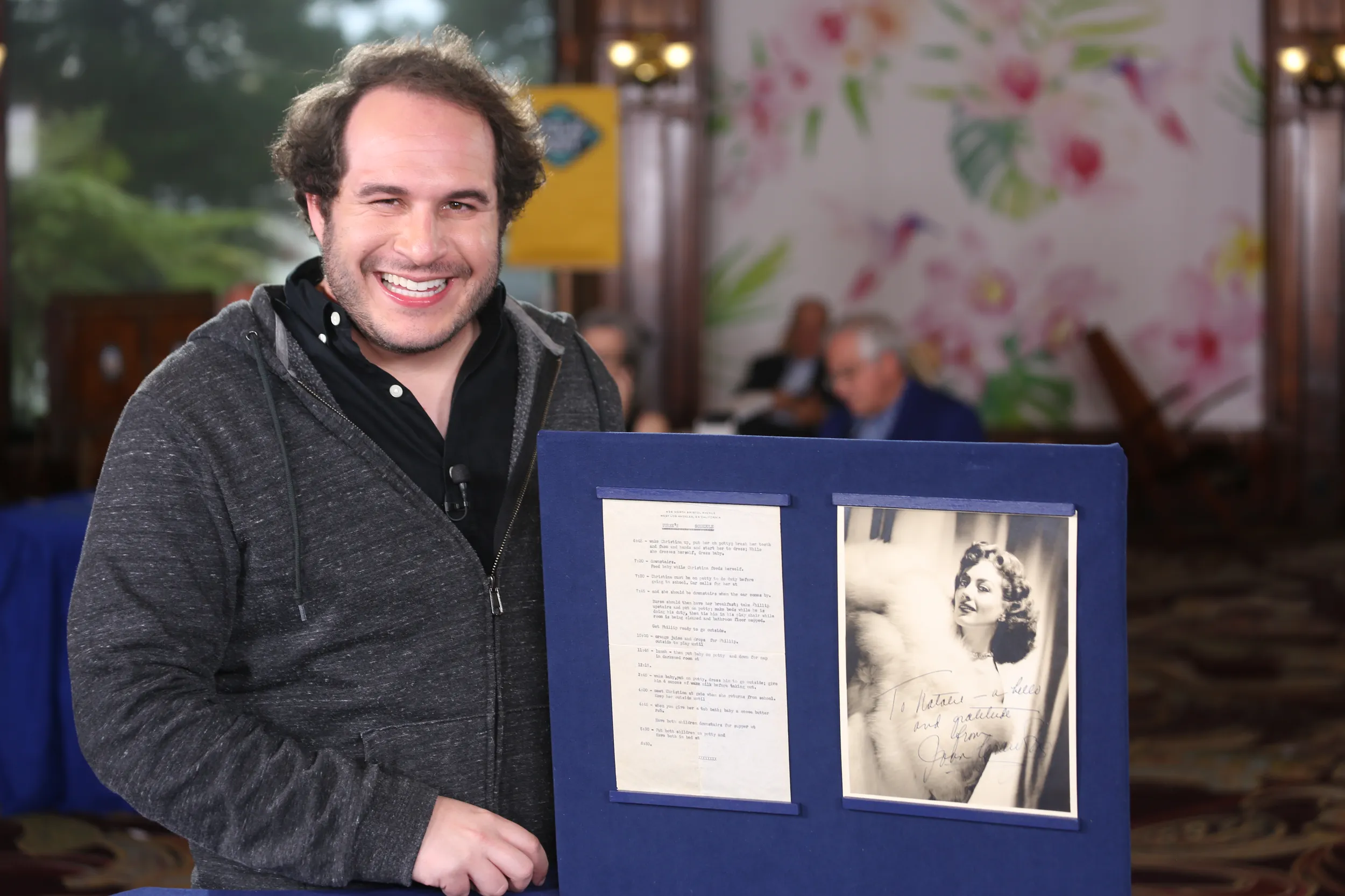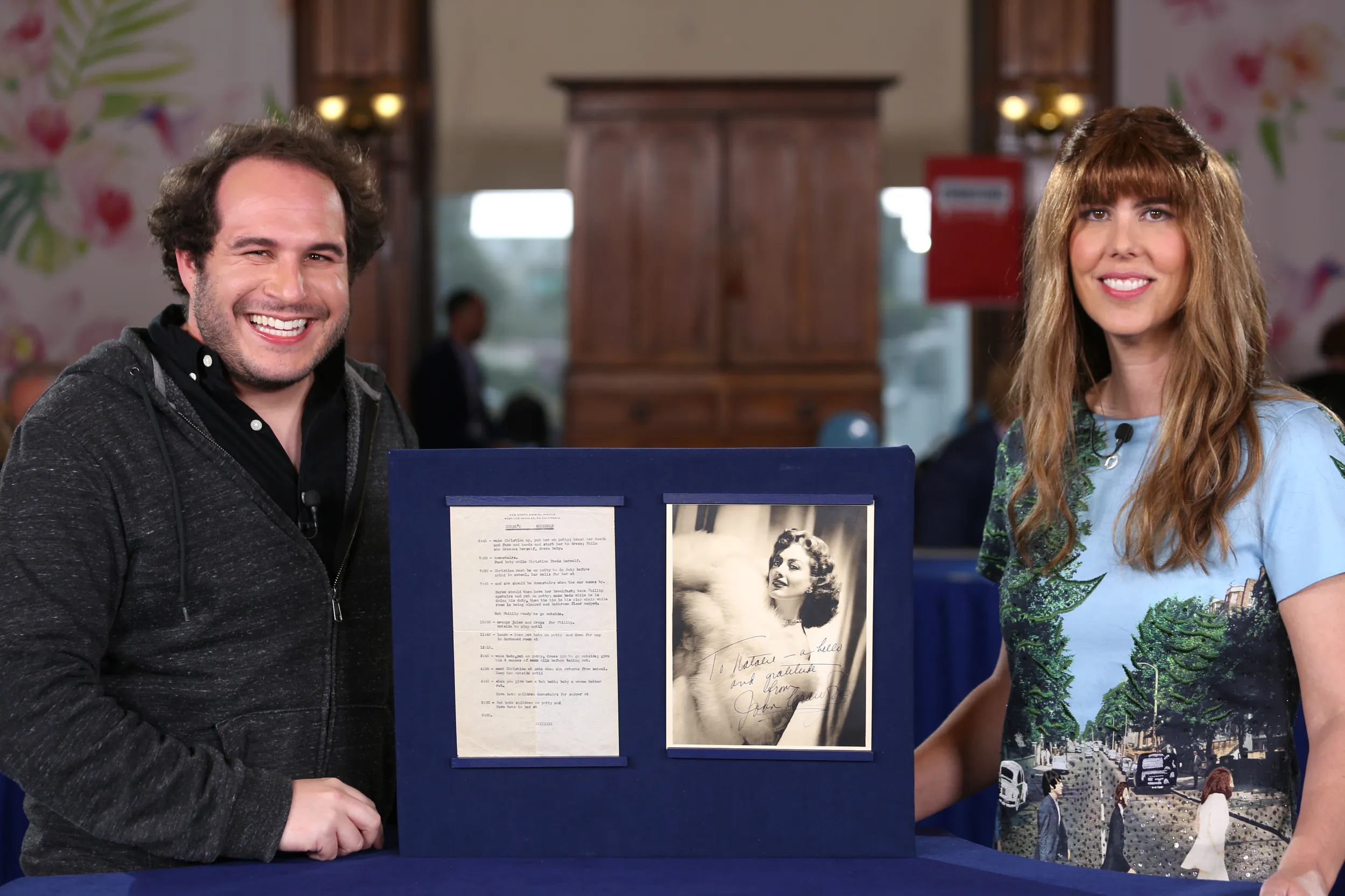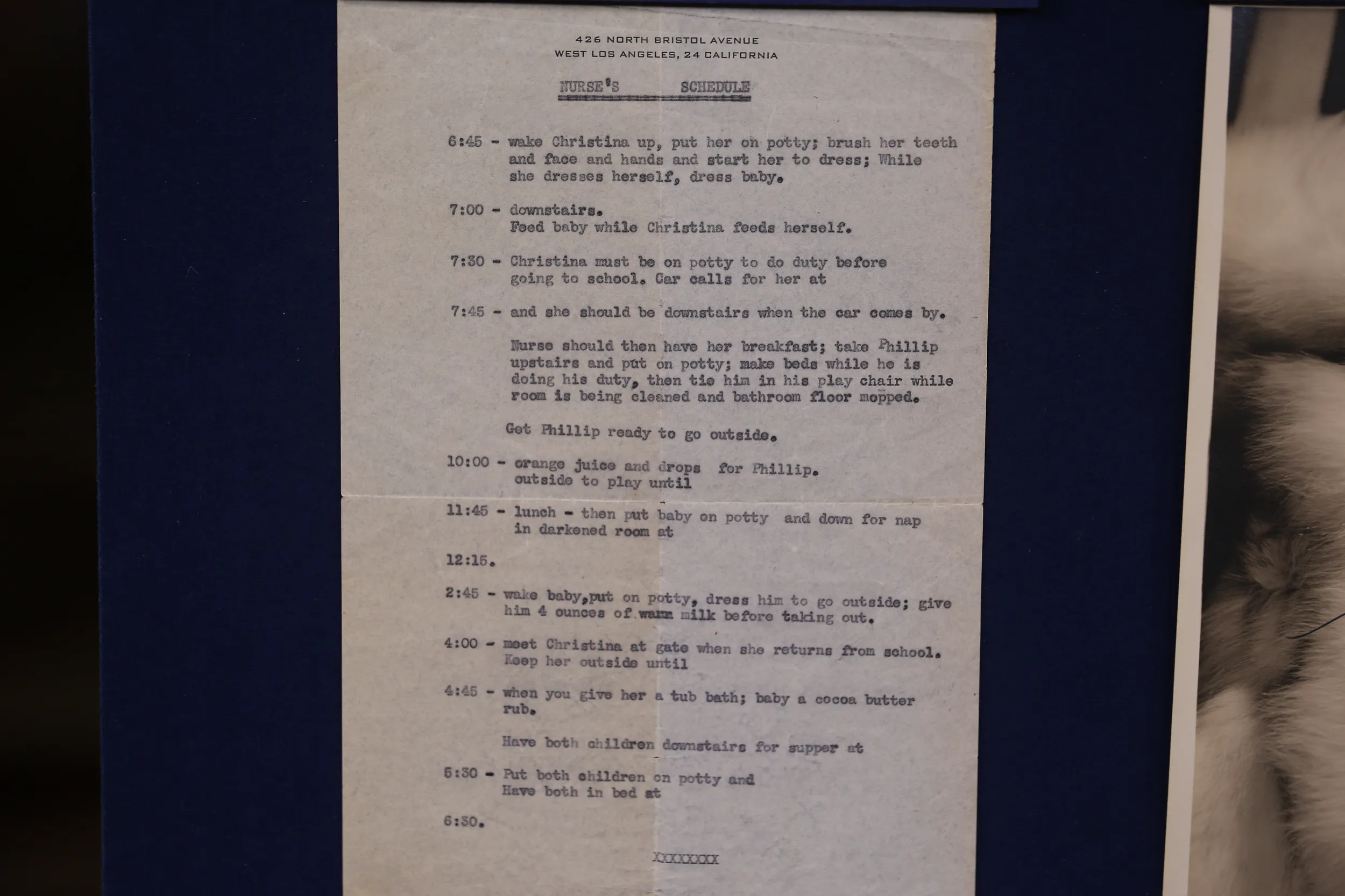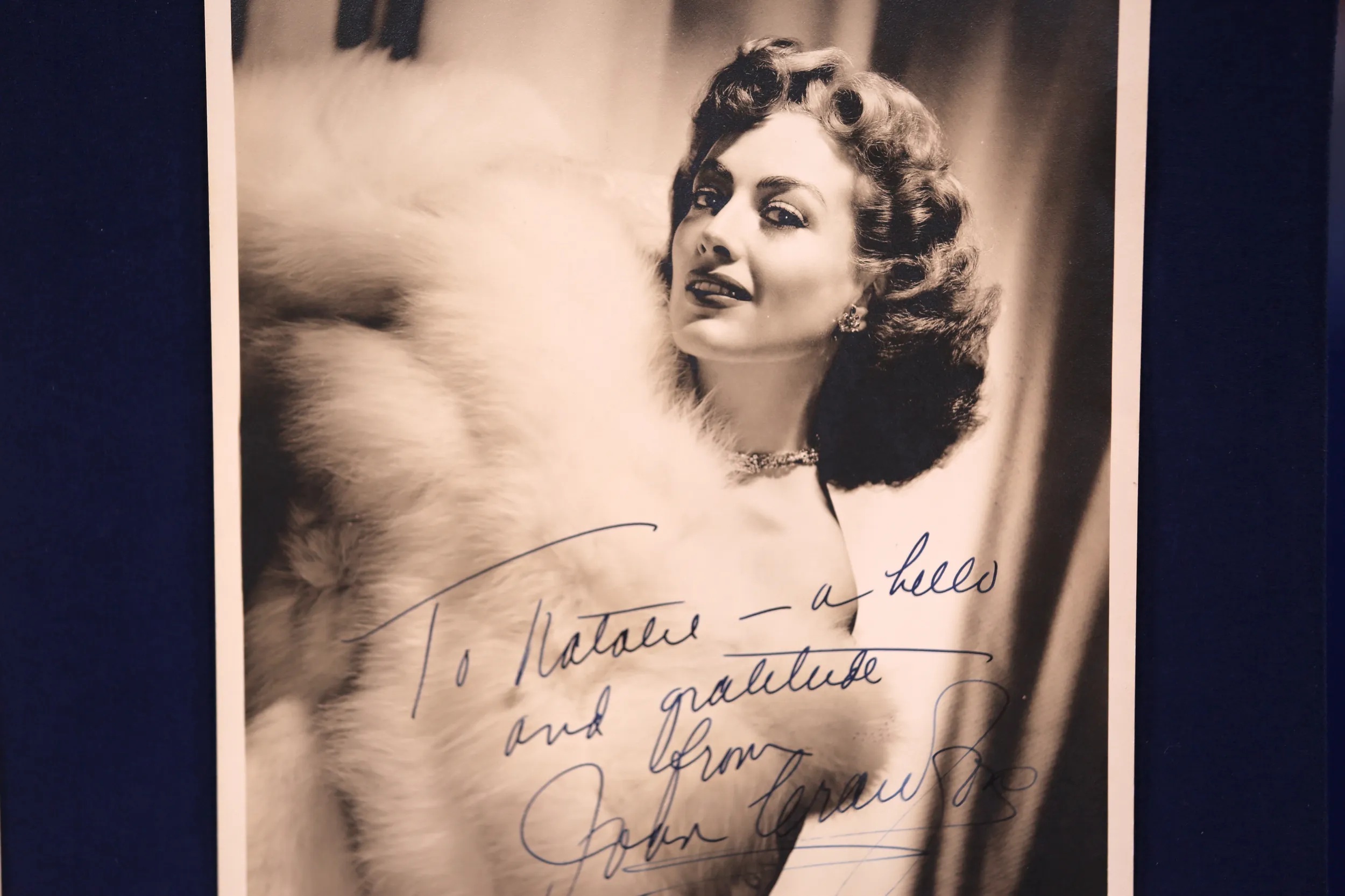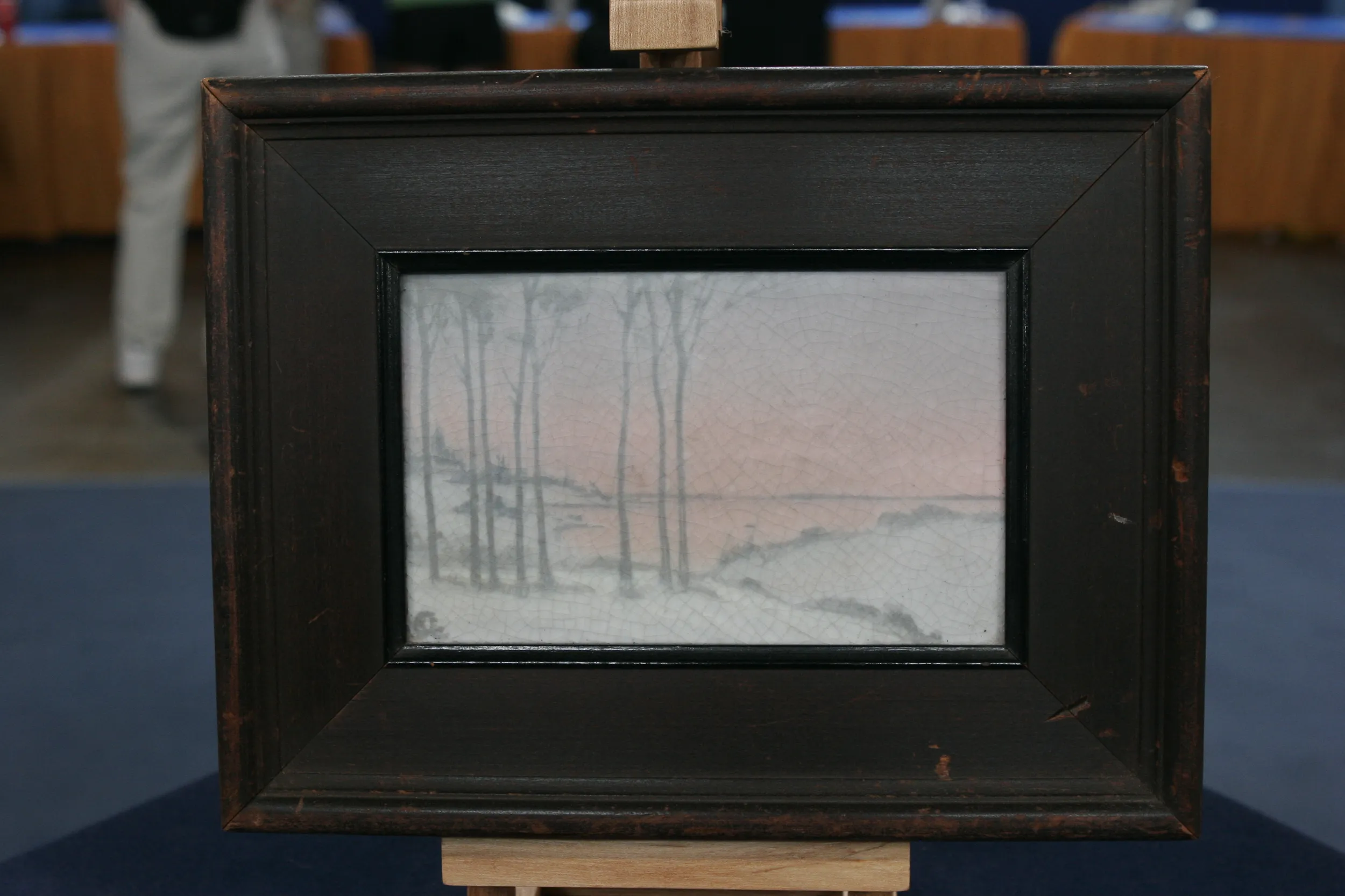APPRAISER: Obviously, we have here a signed photograph of Joan Crawford, but what is this other piece, and how did you get these?
GUEST: So this other piece is a schedule that Joan Crawford wrote out. So my grandmother-- which is my father's mother-- for a brief period in 1940s, was actually Joan Crawford's nanny. I don't know if you ever saw that movie "Mommie Dearest," or anything like that, she was actually kind of a witness to that. And this was the schedule that she had to follow very closely. She couldn't deviate from the schedule, and this was something that I came into possession with because my father passed away a few years ago, had it in the house that my grandmother had been the nanny, but we didn't ever really know where this stuff was. So when he passed away, we were going through all the stuff he had hoarded over the years, and we finally found this.
APPRAISER: Wow. Well, Joan Crawford was a very generous signer. So being someone who works in this world, I've seen a lot of Joan Crawford handwritten documents, letters. She wrote a lot of letters to people, thanking them for things.
GUEST: Yeah.
APPRAISER: And she was very generous with her signature, so we see a lot of photographs. She was not, however, so generous, perhaps, in her home life, which is a controversial topic.
GUEST: Yes.
APPRAISER: When her daughter Christina wrote the book "Mommie Dearest," a lot of people came out in Joan Crawford's defense and said, "That's not true, I know Joan Crawford, it couldn't have happened." Her first husband was in support of it, Katherine Hepburn stood behind her. And then there were some people in Hollywood who came out and said, "No, I think that a lot of the stuff in the book was true." And there's been a lot of debate, and I think what the most interesting thing to me about your documents are, they are a firsthand record of someone who witnessed what went on in that household in intimate detail.
GUEST: Yes.
APPRAISER: The fact that Joan personally typed this herself shows what an extraordinary control freak she was, and left nothing to chance. And the most shocking thing to me in this entire schedule, which outlines exactly when the children were to be awoken, when they would eat, when they would be dressed, when they would be sent to do their "duty in the bathroom," as she puts it.
GUEST: Yes.
APPRAISER: But the most shocking one here, talking about the baby, "then tie him in his play chair while his room is being cleaned."
GUEST: Yes.
APPRAISER: So in my mind, this is the first evidence, absolutely hard-fast, no question about it, someone on the scene, Joan Crawford telling her nanny to tie up her child in a chair.
GUEST: Yeah.
APPRAISER: Which, one of the things that we saw in the movie, he was tied to the bed so he wouldn't kick his feet about.
GUEST: Right.
APPRAISER: You had some other handwritten notes that mentioned something about that, as well.
GUEST: Yes, yes.
APPRAISER: So to me, it's very interesting on that front, because this is absolutely black-and-white.
GUEST: Right.
APPRAISER: She's telling her nanny to do this.
GUEST: Yes.
APPRAISER: Because this is something we see a lot of...
GUEST: Yeah.
APPRAISER: The photograph, when these come up-- this is a really beautiful one-- but when the photographs come up, they sell for about $300.
GUEST: Yeah.
APPRAISER: Regularly. But I think when you put this in the context of everything that you have-- the notes, and this schedule-- the whole group would be in the $4,000 to $6,000 range at auction.
GUEST: Wow, very cool.
APPRAISER: It's interesting because your grandmother was also interviewed for the book "Jazz Baby."
GUEST: Yes.
APPRAISER: And she says in that, that interview in the book that, "I saw what happened and everything in that book is absolutely true. 'Mommie Dearest' is true."
GUEST: Yeah.
APPRAISER: She mentions that she has some notes and documents that she thought supported Christina's claims.
GUEST: Yeah.
APPRAISER: And this is the first we're getting a peek at them. I don't think anyone's ever seen these before.
GUEST: Wow, yeah.
